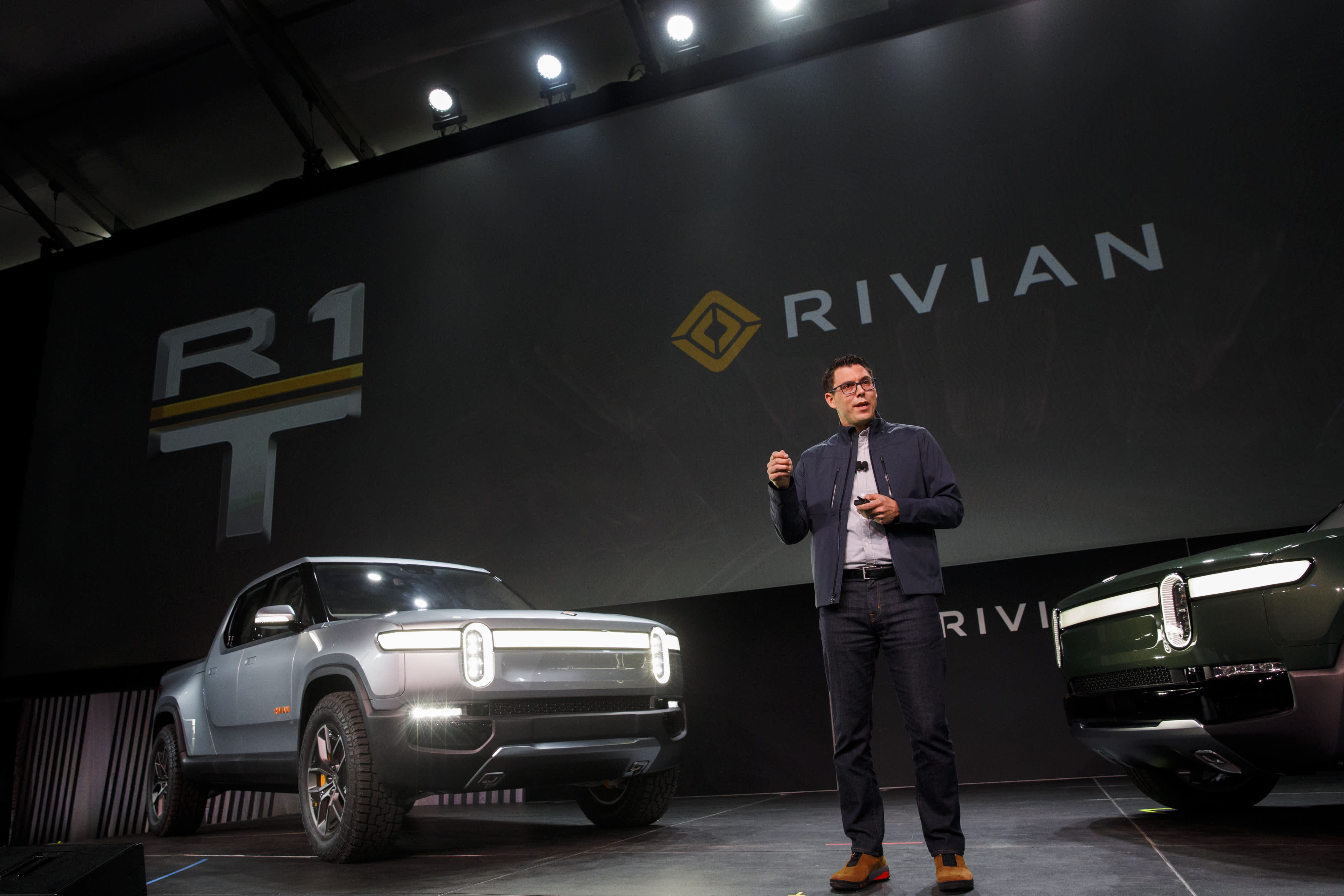
RJ Scaringe, founder and chief executive officer of Rivian Automotive Inc., unveils the R1T electric pickup truck, left, and R1S electric sports utility vehicle (SUV) during a reveal event at AutoMobility LA ahead of the Los Angeles Auto Show in Los Angeles, California.
Bloomberg | Bloomberg | Getty Images
Electric vehicle start-up Rivian Automotive raised the expected IPO price of its shares on Friday.
Rivian now plans to offer 135 million shares priced between $72 and $74, up from $57 to $62, according to an updated securities filing. At the top end of that current range, and assuming underwriters exercise an option to purchase 20.25 million additional shares, Rivian would be worth more than $65 billion.
Rivian, which is backed by Amazon and Ford, plans to go public as soon as next week, sources previously told CNBC. It plans to list on the Nasdaq under the ticker symbol “RIVN,” according to Rivian’s IPO prospectus filed last month.
The rich valuation would mean Rivian is only slightly less valuable than traditional automotive giants like GM and Ford, which holds a stake greater than 5% in Rivian. The company has never recorded any material revenue, and expects at most to generate $1 million in revenue in the quarter ended Sept. 30, according to its filings. It lost $994 million in the first six months of the year.
It would also make Rivian the titan among a crop of electric vehicle start-ups and recently public companies from the U.S., including Fisker, Lordstown Motors and Lucid, and would put it on par with Chinese electric vehicle maker Nio.
Rivian is developing last-mile commercial delivery vans for Amazon and recently began production on its hotly anticipated electric pickup, the R1T. Rivian last week disclosed in an amended securities filing it plans to deliver 1,000 R1Ts by the end of the year.
On Thursday, a former female executive at Rivian revealed in a gender discrimination lawsuit filed against the company that she raised concerns about the company’s “ability to deliver on its promises to investors” to top executives. The executive, Laura Schwab, claimed those concerns were dismissed along with complaints that female employees were being shut out of critical meetings and marginalized.
A Rivian spokesperson previously declined to comment on Schwab’s lawsuit and allegations.
This article was originally published on CNBC

